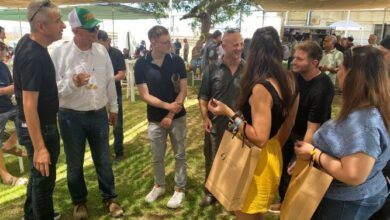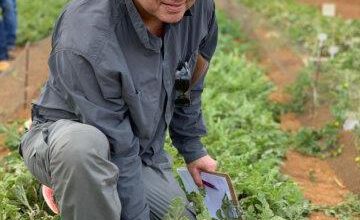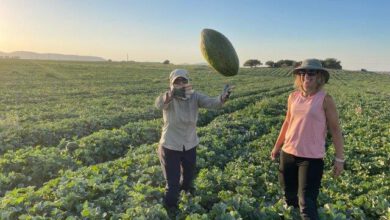Ethiopian Agriculture Progressing from Subsistence Farming
How "Shanty" Variety of tomatoes Has Changed the Lives of Several Villages in Ethiopia
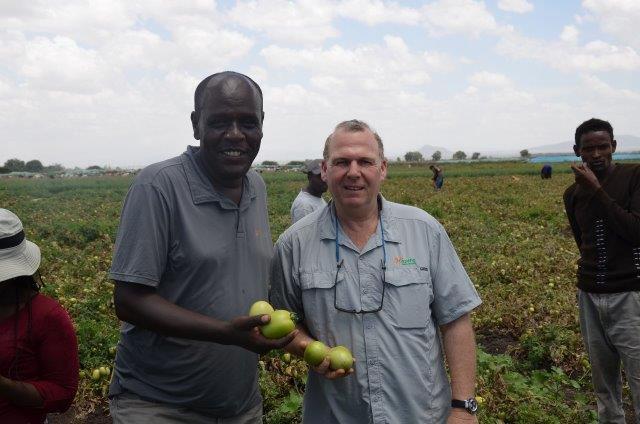
“life before and after ‘shanty'”, so farmers from several villages in ethiopia have described how growing the “shanty” variety of tomatoes has changed their lives.
the farmers owe this change to the vision of one man named jawadat, the “hazera” company’s sales manager for africa, who two years ago initiated a project aimed at leading and advising the ethiopian villagers to grow vegetables as their farm produce. he began by distributing seeds to farmers in the villages and providing them with training on-site to grow vegetables for their own consumption. the results exceeded by far all the locals’ expectations, who by the project’s second year asked to buy seeds with their own money and only availed of the technical knowledge, which the company continued to offer them.
as already noted, during the project’s first year the village farmers, whose plots covered about 5,000 m2, enjoyed on-site guidance and thereby received with tools to cultivate the crops correctly – how to irrigate and how much, when to fertilize and similar operations. two years after the project began, it expanded continually to include new areas, with diverse climatic conditions, for ethiopia is 55 times larger in size than israel, and its agriculture is based on growing tomatoes, onions and peppers, which are staple foods in ethiopia.
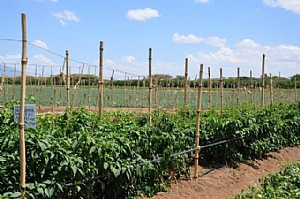 |
 |
the success of the project’s expansion can be seen by the encouraging fact that farmers who acquired the tools from the “hazera” company’s advisers are already instructing farmers in the neighboring villages; and the ethiopian ministry of agriculture have been integrated in this initiative, offering its support by taking a leading role in the project and extending it to about 100 additional villages.
jawadat, who is justly proud of the project’s success, noted that the method of individual training and on-site guidance was the conventional practice during the first years of the state of israel, when the ministry of agriculture sent its advisers all over the country to instruct the farmers. jawadat recalls that his own father was such a farmer who so managed to acquire invaluable knowledge and information to help him as he started cultivating the land.
jawadat concludes and states with some gratification that the fact that the ethiopian government is increasing the extent of the orders for seeds placed with the “hazera” company is an indication of the project’s success. the additional seed were needed to include an increasing number of villages in the program and thereby increase the agricultural production and its development from subsistence production to growing crops for sales and boosting the ethiopian farmer’s profits.
apart from this project, “hazera” company’s have additional business in ethiopia and for many years now their employees have been counseling a group of women and children and together with them are fostering a personal interaction based on a prolonged correspondence (including the exchange of photographs documenting the growth, in more than one sense of the word) and supporting their wish to make progress that goes beyond training alone.
one such example is the purchase of a water pump by the “hazera” company for the population, and with this new addition granted to them a significant change was brought about to their lives.

